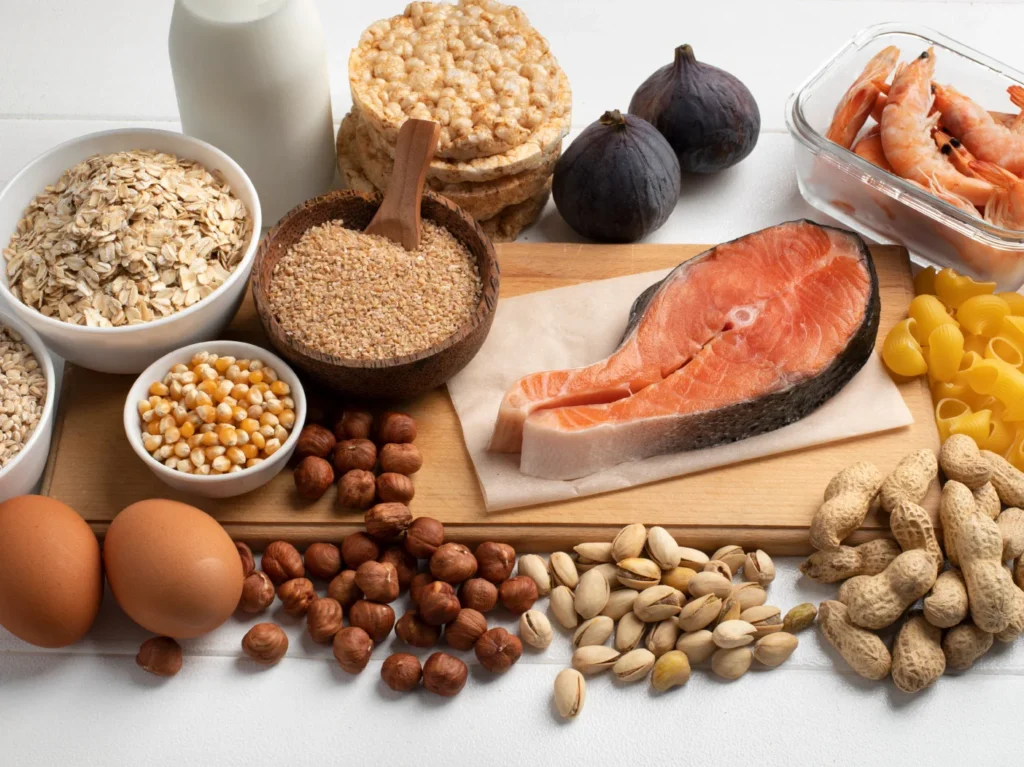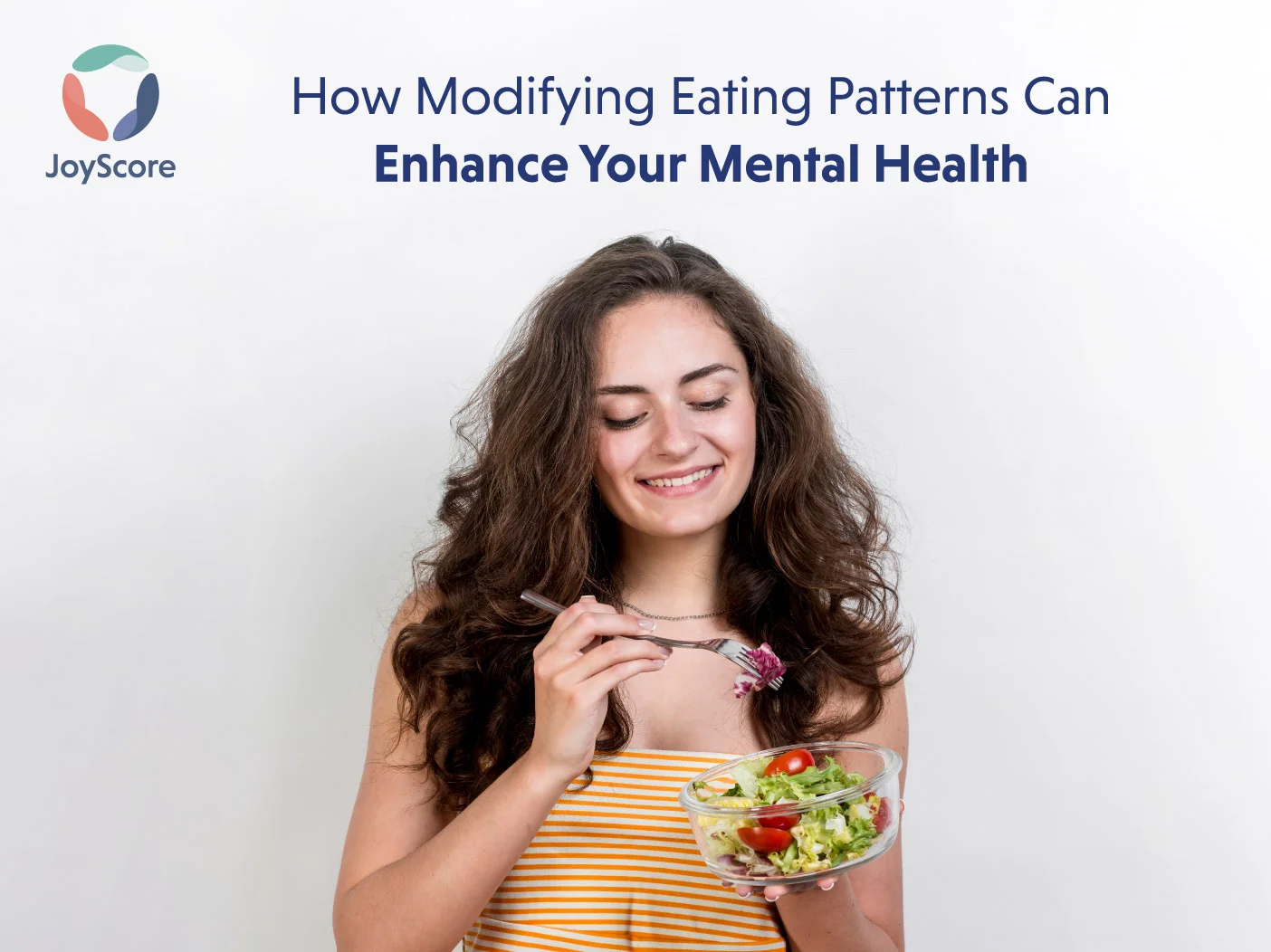When it comes to brain health, not only the food we eat but how we eat is important. In diet, unhealthy foods that are rich in fats, sugars, and preservatives, are not advised. Instead, nutrient-rich foods must be eaten, such as fruits and vegetables.
In recent years, the association between brain health and food choices has gained considerable interest. Eating well helps you think clearly and feel more alert. However, it may take days or weeks before you start to feel the mental benefits of a well-balanced diet. The gut also influences your emotional behavior in the brain through neurochemicals. This is because some mood-enhancing hormones like serotonin are mostly produced in the intestine.
In addition to what you eat, how and when you eat are also significant factors that influence your mind. If you overeat or undereat, you have to be mindful of the factors that urge you to follow this disturbed eating pattern.
Top three foods that support a healthy eating mindset:
COMPLEX CARBOHYDRATES
This includes brown rice and starchy vegetables such as quinoa, millet, beets, and sweet potatoes. Along with being a rich source of energy, they also keep you satisfied for long. You should be eating these instead of simple carbohydrates like sugar and candy.
FATTY ACIDS
Fatty acids are very essential for the normal functioning of your brain and nervous system and must be consumed on a regular basis. Foods like fish, meat, eggs, nuts, and flaxseeds are the richest source of fatty acids.
LEAN PROTEINS
These are slow-release energy foods and will help you work out for hours, especially if you are a gym lover. Lean proteins allow your body to think and react quickly and can mitigate depression and anxiety. Creating a menu plan including pulses, legumes, fish, eggs, soybeans, meat, nuts and flaxseeds gives you plenty of proteins.
ANTIOXIDANT-RICH FOODS
Foods rich in antioxidants are also stress-fighting foods. They are a good source of vitamin C and assist in returning blood pressure and cortisol levels to normal. Strawberries, blueberries, raspberries, and blackberries are loaded with antioxidants.
CAFFEINE
The caffeine found in coffee, dark chocolate, and tea has a number of positive effects on the brain. They keep your brain alert, induce feel-good neurotransmitters, and sharpen your concentration. But avoid overdrinking these beverages as they may interfere with your sleep cycle.
Other healthy eating patterns to keep your mind healthy are:
- QUIT DIETING

Dieting alone doesn’t help. One can easily regain weight over time. Even if a diet plan doesn’t work, you will be told that you are doing it the wrong way. So, get rid of forceful inhibition or depression over failure. All this often leads to feelings of guilt, self-loathing, and even anxiety.
Instead, build up your willpower and eat everything in moderation. Chew your food slowly to notice the flavors and textures of your food. It gives a feeling of satisfaction and enjoyment and keeps your hunger at bay.
- EATING ON TIME
Eating your meals regularly and not skipping your meals keeps you loaded with energy. You will have the needed fuel for the mental and physical functioning of the body. On the contrary, skipping any meal, let say breakfast, will train your mind to not send hunger signals at that time. Thus, you will start to skip breakfast more often and lack the energy to start your day.
Breakfast
Breakfast is the breaking open for the fast of a night that went without eating. It prevents you from feeling drained and reaching out for unhealthy options by mid-morning. Aim to eat within an hour of waking up and maintain an appropriate gap between breakfast and lunchtime.
Lunch

Take your breakfast about four to five hours after breakfast. If one is not able to eat on time, then a healthy snack can be planned in between to prevent becoming overly hungry.
Dinner
The window between lunch and dinner is again for four-five hours to avoid overeating at dinner time. Some may feel the need to eat a snack in between as eating at 4 or 5 pm is not feasible.
EATING WITHOUT A RUSH
If you are not skipping meals, you might be falling into the habit of rushing through your meals due to a busy schedule. If you make it a practice to sit down and take time for meals, they will be digested better. When you slow down and focus on what you are eating, you can enjoy the texture, taste, and smell of food. This eventually improves your mood and gives you a satiety feeling.
- AVOID DEHYDRATION

If you are not drinking enough water, this will affect your mood. It will make you less calm, more overwhelmed, and more dissatisfied. Dehydration may be the cause as it drains your brain’s energy and impedes the production of serotonin, a happy hormone.
Drinking 6-8 glasses of water puts you at a lower risk of anxiety and depression. You feel happy, emotionally leveled, and stable. So, try drinking before experiencing thirst and avoid confusing thirst with hunger. Take note that fluid loss can be compensated with other drinks other than water. Chamomile tea, black tea, green tea, coffee, coconut water, milk, lemon balm tea, and vegetable and fruit juices are some of the stress-relieving drinks.
CONCLUSION
Healthy eating habits must be a routine. But the focus should not only be on what to eat but how you eat and when you eat is also important. All these changes will enhance your brain health and help you fight stress and depression.
Download the JOYSCORE app for more healthy tips!
Download on the Appstore
Get it on Google Play



